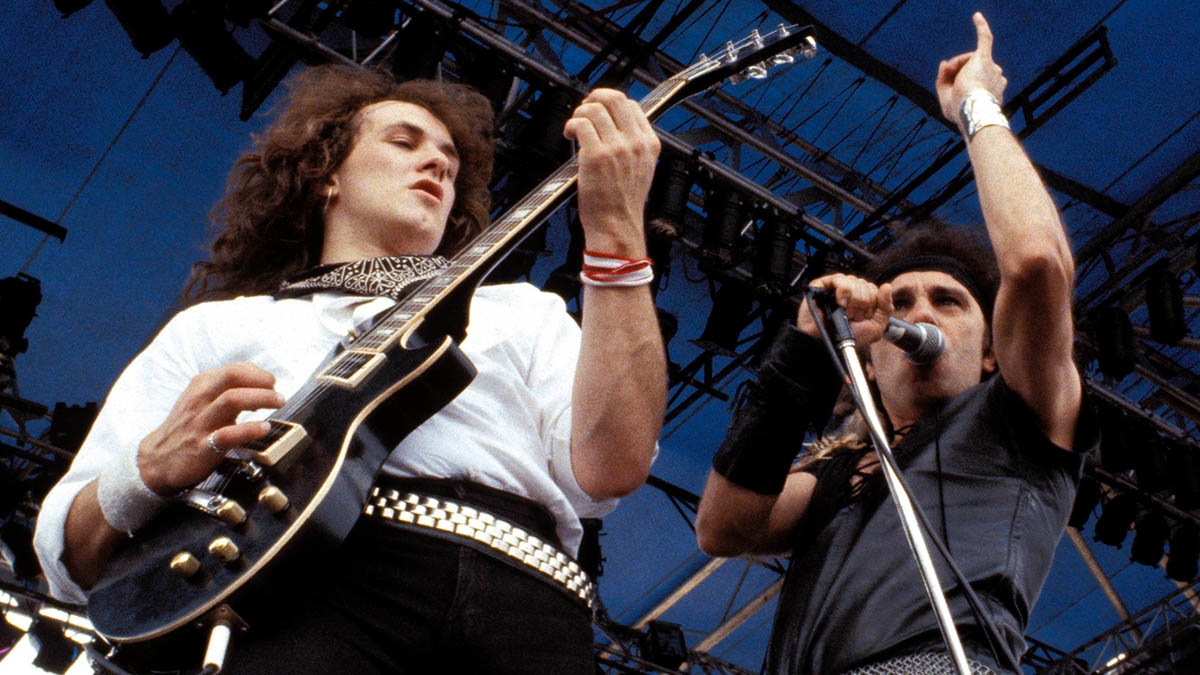
Recorded in the spring of 1984 at Caribou Ranch studios, way up in the Rocky Mountains of Colorado, expectations around Dio’s second album – aka the follow-up to 1983’s Holy Diver, a worldwide smash hit – ran about as high as the Rocky Mountains themselves.
In the end, The Last in Line, released in early July of 1984, turned out to be the band’s highest charting album, with the single of the same name even breaking into Billboard’s Top 10.
“We stayed at Caribou Ranch for the duration of the sessions, and we’d eat together in a mess hall,” says guitarist Vivian Campbell, who had also worked on Holy Diver. “It was a focused environment that enabled us to do some great creative work.”
According to Campbell, the writing process was collaborative, with the band creating songs together in rehearsals prior to the recording sessions. Of the album’s nine tracks, seven are co-credited to band members, including Campbell (six songs), bassist Jimmy Bain (five) and drummer Vinny Appice (four). Of course, there’s the case of the album’s beloved opener, We Rock, which was created on the spot in the studio.
“Vinny had a beat, Ronnie hummed a bit of a melody, I worked out the chords and riff and we were away in no time at all,” Campbell says.
“As was typical with Ronnie, I wasn’t surprised to see that I didn’t get a writing credit. I was in my early twenties back then, and I felt very sheepish about asking for my due.”
Speaking of youth, Campbell occasionally found himself at odds with his boss’s perspective.
“Because I was so much younger than Ronnie, I’d look at bands like Ratt, Van Halen and Dokken and think they seemed so much looser and were having more fun than we were.
“They didn’t take themselves as seriously as Ronnie, who was rooted in Seventies classic heavy metal. I was thinking we were a little out of step at the time. At our first photo shoot, Ronnie asked me why I was smiling – and then he told me not to.” [Laughs]
At our first photo shoot, Ronnie asked me why I was smiling – and then he told me not to
Campbell’s playing with Dio – particularly on The Last in Line’s multi-faceted title track – brought him plaudits aplenty back in the day, none of which hurt his chances of joining Whitesnake, Lou Gramm’s band and, most famously, Def Leppard.
“Ronnie gave me great advice about building a guitar solo with memorable lines – and not overplaying,” he concludes. “I appreciated that guidance; if left to my own devices, it would have been a case of how many fucking notes I could fit in. [Laughs]
“When we do The Last in Line and We Rock with my Last In Line side band, I always play the solos exactly the same as when I recorded them, which I never did at the time. Re-learning them gave me an appreciation for my playing back then, which I never had when I used to hear them on the radio, back when I used to think my playing sucked…” [Laughs]
- The Last in Line is out now via Warner.







